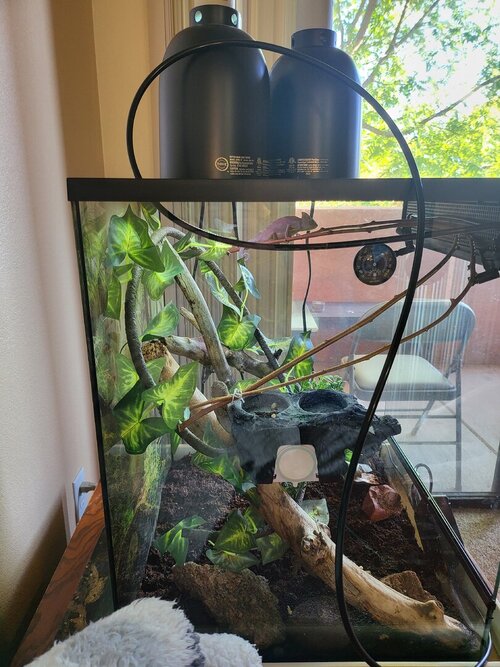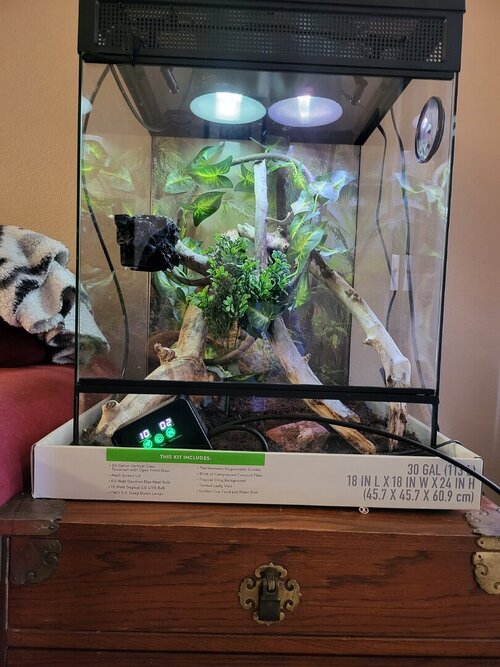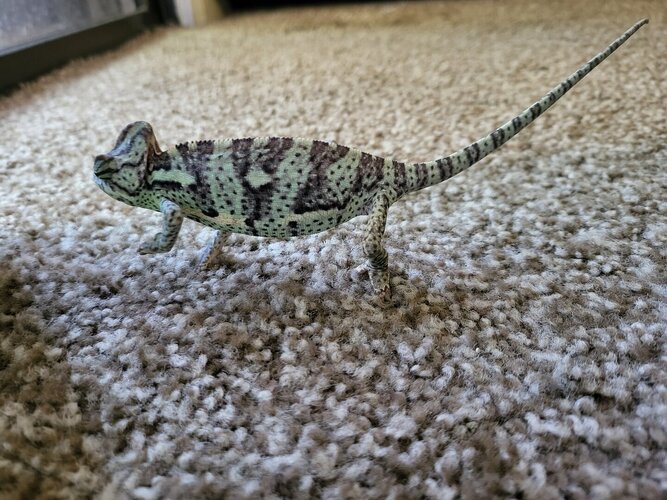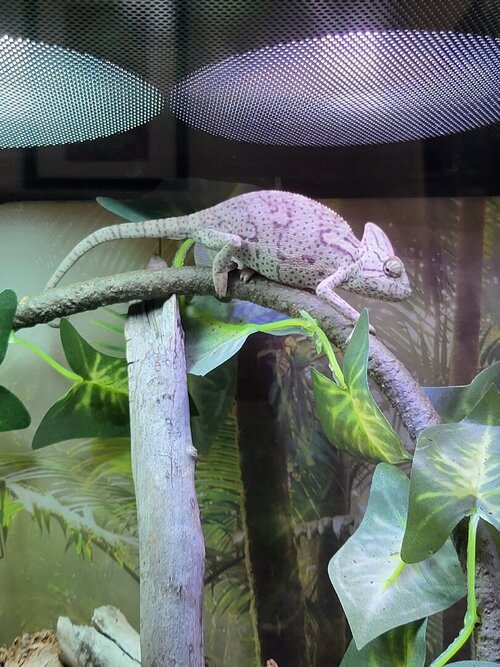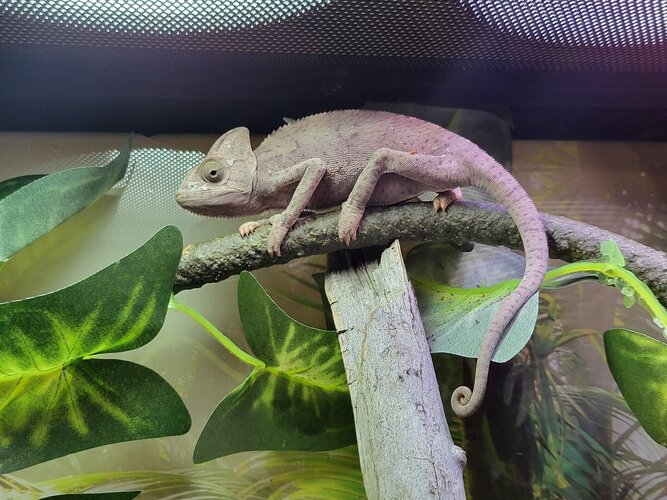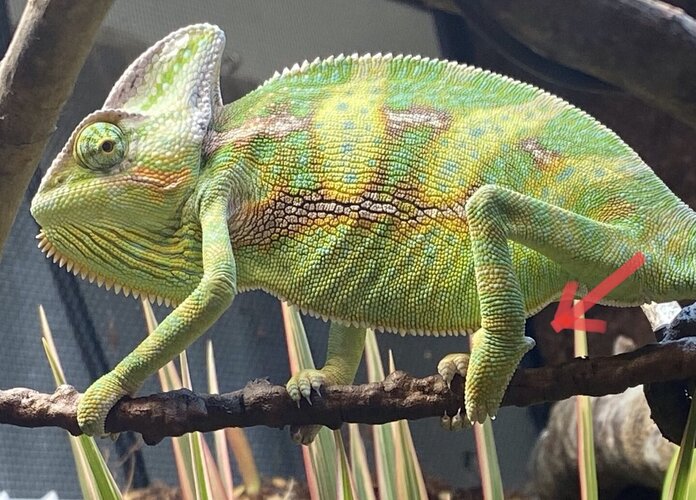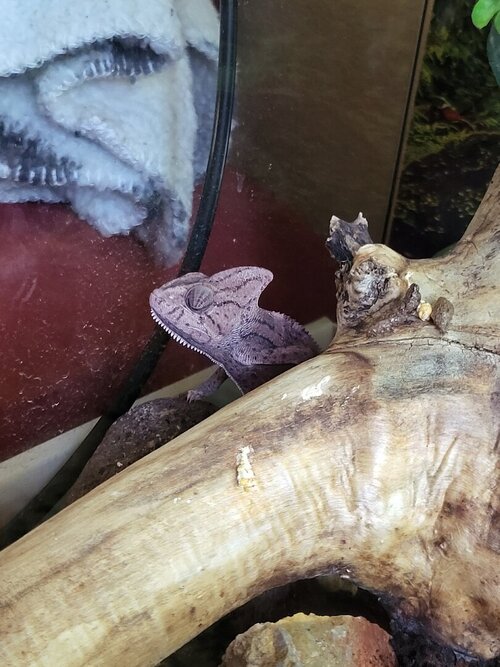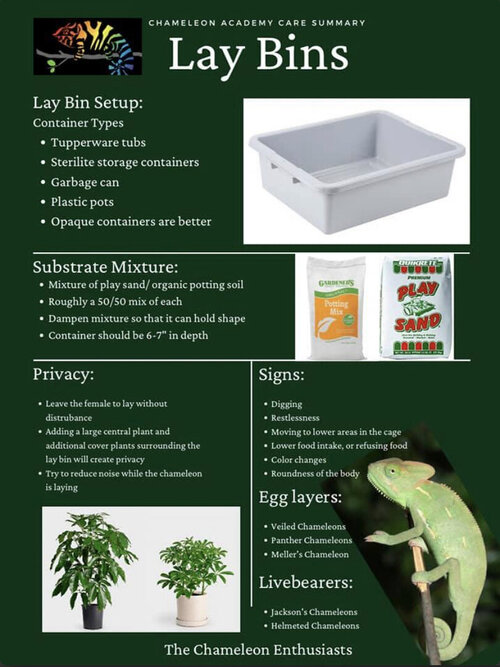gt4awd
New Member
Hello, I got my veiled three weeks ago. He has already doubled in size! Been really interesting to see the changes they go through so quickly. Generalized color, pattern changes, etc... He just finished his first shedding since I've had him. I feed small crickets daily. Hoping he is almost big enough for large crickets? There is a UV bulb and a 100w blue daylight. The heater is 100w ceramic. I did purchase a under tank heater just haven't installed yet. Three ballast now so I don't have to swap bulb for heater. Automatic mister system goes off 10 seconds every 2 hours. It flows a lot. Right now I'm showing 40% on the humidity so maybe I need to do once an hour again? It used to sit at 50% and max at 70% at night. Temp shows 80F Guage is positioned away from basking area though. He had a gaping issue since arriving at Petsmart. Seems to be gone now. Lasted about two weeks after purchase.

